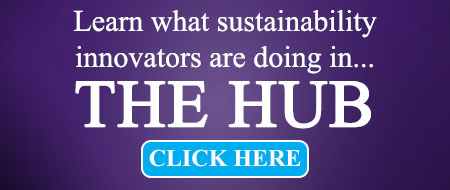The fact that something is legal doesn’t make it ethical. You might think it’s obvious, but it’s not, as evidenced by the fact that a former student recently told me that his Finance professor explicitly told him that if something is legal, it’s ethical…full stop. Of course, the student — my student — knew better, and related the story to me while rolling his eyes.
So let’s make the case explicitly, and explain why legality doesn’t determine ethics.
First, we can proceed by enumerating a few counter-examples:
- Most kinds of lying are perfectly legal, but lying is generally recognized as being unethical;
- Breaking promises is generally legal, but is widely thought of as unethical;
- Cheating on your husband or wife or boyfriend or girlfriend is legal, but unethical, though the rule against it is perhaps more honoured in the breach;
- …and so on.
So, if you want to hold that what is legal is also ethical, you’ve got to bite an awful lot of bullets, and accept as ethical a lot of behaviours that you very likely don’t want to accept.
Of course, it could be that the aforementioned Finance professor wasn’t making a general claim about the relationship between ethics and law at all, but was instead making a more subtle point about ethical standards in competitive domains. After all, ethical rules are different in adversarial situations, and it might well be argued that in the highly-regulated world of commerce, businesses should feel justified in helping themselves to whatever strategies aren’t specifically outlawed.
“Anyone who tells you, or simply implies, that whatever is legal is also ethical is most likely indulging in self-serving rationalizations.”
But that rationale is, at best, incomplete, and leaves open a different line of argumentation, one that applies even within competitive domains, and one that should truly drive a stake through the heart of the “legal=ethical” nonsense.
The ultimate disproof lies in the hidden circularity of the Finance professor’s argument, which we can illuminate by contemplating the process by which something is made illegal.
 Consider: on what general basis is something made illegal? Let’s set aside cases of unscrupulous legislators passing laws simply to benefit themselves or their friends. In all legitimate cases of lawmaking, the law always has a moral purpose — generally, either to make people’s lives better and safer (e.g., seatbelt laws) or to protect some important right (e.g., food-labelling laws).
Consider: on what general basis is something made illegal? Let’s set aside cases of unscrupulous legislators passing laws simply to benefit themselves or their friends. In all legitimate cases of lawmaking, the law always has a moral purpose — generally, either to make people’s lives better and safer (e.g., seatbelt laws) or to protect some important right (e.g., food-labelling laws).
But if the aforementioned Finance professor were right, there would be no possibility of finding a moral rationale for any new law. After all, according to him, if a behaviour is legal (right now) then it is ethically OK (right now). On what basis could new laws ever be passed? Certainly not on ethical grounds, because per hypothesis if something is currently legal is must be ethically OK. What if some horrible new toxin is discovered, the use of which by industry would pose significant risks to workers or consumers? Should it be banned? According to the Finance professor, it cannot be. After all, using it is legal, so it must be ethical; and if it’s ethical, it cannot be made illegal.
Anyone who tells you, or simply implies, that whatever is legal is also ethical is most likely indulging in self-serving rationalizations. When that idea comes up in the private sector, it’s likely that someone is trying to justify some profitable behaviour that is unethical but not-yet illegal. When that same idea comes up in academic circles, it’s more likely the self-interest they are trying to preserve is their own interest in avoiding the hard work of figuring out which business behaviours are unethical, and why.
This article was originally published on the Business Ethics Blog
______________________________
Chris MacDonald, Ph.D., is an educator, speaker, and consultant in the realm of business ethics. He teaches at the Ted Rogers School of Management, at Ryerson University in Toronto, where he is Director of the Jim Pattison Ethical Leadership Education & Research Program, at the Ted Rogers Leadership Centre.

















